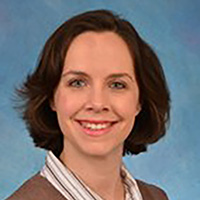
Cancer Genetics and Genetic Testing - It's Not All in the Family - SPOC
Webinar InformationWebinar Description Genetic sequencing technologies are increasingly applied in the oncology setting for a variety of purposes. Genetic testing of tumor specimens can help clarify a diagnosis and inform targeted therapies. Circulating tumor DNA can be detected in blood samples and can also guide therapy as well as monitoring for response to treatment or recurrence. Five to ten percent of cancers are the result of an underlying hereditary syndrome. Dedicated germline (i.e. hereditary) genetic tests are required to identify these syndromes, but other genetic tests may provide clues about the chance of a hereditary syndrome. Inappropriate use of other types of genetic testing to assess germline risk can result in harm to patients. We propose to provide education about various oncology genetic tests and their uses, with an emphasis on what those tests may (or may not) tell us about underlying hereditary risk. We will illustrate this with case examples, including a recent case referred to us who underwent prophylactic surgeries after being told she had BRCA1/2 associated hereditary breast and ovarian cancer syndrome following incorrect ordering of a test that did not address germline risk and misinterpretation of the results. Learning Objectives
|
Webinar DocumentsHandouts |
Webinar RegistrationYou must have an account and be logged in to register. Please contact us with any questions at [email protected] or (919) 445–1000. |
 | The Cancer Treatment in North Carolina: Patient Centered Care webinar series covers components of patient-centered health care delivery in cancer treatment and survivorship. The focus of this series is not disease-specific but includes discussion of approaches to improving care delivery for all cancer patients and survivors. These webinars provide FREE continuing education credit. |
 | Kate Foreman, MS, CGC Clinical Assistant Professor & Genetic Counselor |
This Non-Credit Course does not have accreditation. It only offers general participation certificates.
Available Credit
- 1.00 Participation
You must have an account and be logged in to register for and to access the course.
Requirements for Receiving Free Continuing Education Credits
Please see our detailed instructions for more information on completing the Self-Paced, Online Courses and receiving credit. |

 Facebook
Facebook X
X LinkedIn
LinkedIn Forward
Forward